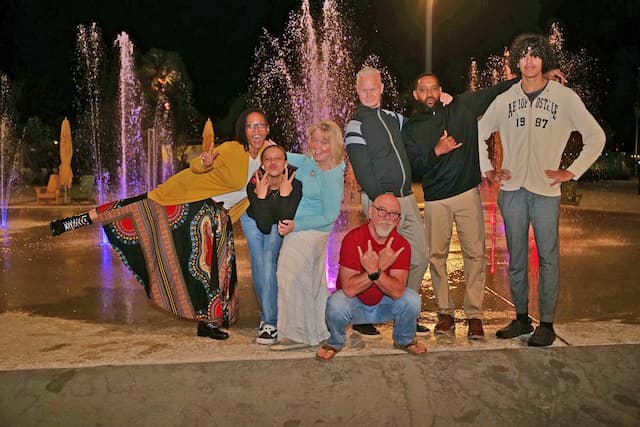Did You Find The Lost Coin?
1.0 Context
Parables are tools to compare something physical to something spiritual. Yeshua begins several parables by saying “The Kingdom of God is like…” so He could tie an abstract concept (the Kingdom of God) to something more concrete and visible (like a mustard seed in Matthew 13:31-32).
Yeshua taught with parables for two main purposes: to explain truth to some (see Luke 10:36-37) and to keep truth hidden from others (see Mark 4:10-12). For those eager to follow God, parables were memorable illustrations of a kingdom principle. For those opposed to God’s plans, the meaning of the parables would be hidden in a form of judgment.
Often times a parable has a brief introduction that will greatly affect its meaning and interpretation. Keep in mind to know what happen before Yeshua the Messiah could always open his mouth for parables, as they serve the key to the answer of the hidden truth, (The lost sheep, The lost coin, The prodigal son) all these three parables has interconnection and inner meaning, but Yeshua spoke these to the Pharisees and Scribes for a reason.
Some of the images and metaphors have rich meaning to people in Yeshua’s time that are not as easy to recognize for those living in the 21st century. The Parable of the Ten Virgins (Matthew 25:1-13) and The Parable of Lost Coin (Luke 15:8–10) makes much more sense when one understands the Jewish marriage customs present at the time of Yeshua.
Party Hard – Pawsome Pets
We must be careful while reading a parable as many tries to interpret in the way they feel it right, while knowing who are the people in parable and what is their nature and purpose or role in that parable we can find the real meaning. Also that parable must support God’s plan and also the situation why Yeshua spoke.
1.1 Why Yeshua speak to people in parables?
In Matthew 13:10-17 we read, then the talmidim came and asked Yeshua, “Why are you speaking to them in parables?” He answered, “Because it has been given to you to know the secrets of the Kingdom of Heaven, but it has not been given to them.
For anyone who has something will be given more, so that he will have plenty; but from anyone who has nothing, even what he does have will be taken away. Here is why I speak to them in parables: they look without seeing and listen without hearing or understanding.
That is, in them is fulfilled the prophecy of Yesha‘yahu [Isaiah] which says, ‘You will keep on hearing but never understand, and keep on seeing but never perceive, because the heart of this people has become dull – with their ears they barely hear, and their eyes they have closed, so as not to see with their eyes, hear with their ears, understand with their heart, and do t’shuvah, so that I could heal them.’
But you, how blessed are your eyes, because they see, and your ears, because they hear! Yes indeed! I tell you that many a prophet and many a tzaddik longed to see the things you are seeing but did not see them, and to hear the things you are hearing but did not hear them.
Further we read in Matthew 13:34-35, all these things Yeshua said to the crowds in parables; indeed, he said nothing to them without using a parable. This was to fulfill what had been spoken through the prophet, “I will open my mouth in parables, I will say what has been hidden since the creation of the universe.”[also refer Psalm 78:2]
Then Yeshua said in Matthew 13:51-52, “Have you understood all these things?” “Yes,” they answered.
2.0 Parable of the Lost Coin
In Luke 15:8-9 we read the parable of the lost coin. It says, “Another example: what woman, if she has ten drachmas and loses one of these valuable coins, won’t light a lamp, sweep the house and search all over until she finds it? And when she does find it, she calls her friends and neighbors together and says, ‘Come, celebrate with me, because I have found the drachma I lost.’
At first glance this parable seems so simple, or even naive, that it does not impress the reader of the Gospel. In fact, however, the mystery of the universe is revealed in this simple parable. Can this be done in today’s world?
Losing one drachma coin [drachma was one of the world’s earliest coins made of silver or gold in ancient Greece, dating from about the mid-6th century BC, and the former monetary unit of modern Greece] and your find that coin with strain and once you find it, take that coin out and show it to your friends and family and say Rejoice with me?
If we take it literally, it evokes bewilderment. People will with no doubt consider you as mad. The woman lost only one drachma. Even ten drachmas do not represent a great sum; in fact, a woman who has only ten drachmas must be very poor indeed.
Let us assume, first of all, that the finding of the lost drachma meant a great gain for her. Yet it still presents a paradox, for how is it that if she is such a poor woman she lights lamps, sweeps the house and calls in all her friends and neighbors to share her joy.
And all because of one drachma! Such a waste of time-lighting a candle and setting the house in order first of all! Furthermore, if she invites her neighbors she is obliged, according to custom, to offer them something to eat and drink, no small expense for a poor woman. To fail to do so would be to ignore an unalterable custom.
Another important point to note is that she did not invite only one woman to whom she might have offered sweets, which would not have involved great expense. But she invited many friends and neighbors, and even if she entertained them modestly the expense would far exceed the value of the drachma she had found.
Why then should she seek the drachma so diligently and rejoice at finding it, only to lose it again in another way? If we try to understand this parable in its literal sense, it does not fit into the frame of everyday life, but leaves the impression of something exaggerated and incomprehensible.
So let us try to discover its mystical or hidden meaning. Who is the woman? And why is it a woman and not a man, when a man is more likely to lose money in the ordinary routine of life?
So what lays the background for this Parable? Before entering this parable we shall know why Jesus compared this with a Woman who had 10 drachma coins. Let us begin the Parable, who does the woman referred to? Woman is Israelites because Christ is talking to the Pharisees and Scribes.
It is a Jewish custom for a woman to possess 10 Silver/Gold coins which will be presented by the Bride groom on the day of their engagement (those coins may contain the Groom’s family name or some symbol relating to their family).
From that day till the day of marriage, she has to take that coins often and keep wiping, which means she is thinking of the groom and so on the day of marriage those coins are displayed on their ornaments, either on their head or as a chain. So! The more those coins shine, the more she has thought of the groom.
If those coins don’t shine, then that will reflect that girl’s character. Now considering she has lost one of the coin!! Her Marriage could even stop! The groom can simply assume that she is not responsible nor she is interested on the Groom! This is the seriousness of this Parable! This is what decides her Life, where her marriage could have even stopped if she could not have found that one lost coin.
3.0 Commandments, Laws and Statutes and their Consequences
If we read the Bible and meditate on His words we find N number of Commandments, Laws, Statutes and Instructions articulated by Him to His people. Most of them look outdated and irrelevant to our generation.
Most of us also believe that when Yeshua [Jesus] came on this earth, gave His Life on the stake [cross], buried, resurrected from dead and ascended into Heaven, the old set of Commandments, Laws and Statutes mentioned in the Old Testament are replaced by the new set.
However, if we read Matthew 5:17-20, Yeshua himself says, “Don’t think that I have come to abolish the Torah or the Prophets. I have come not to abolish but to complete. Yes indeed! I tell you that until heaven and earth pass away, not so much as a yud or a stroke will pass from the Torah — not until everything that must happen has happened.
So whoever disobeys the least of these mitzvot and teaches others to do so will be called the least in the Kingdom of Heaven. But whoever obeys them and so teaches will be called great in the Kingdom of Heaven. For I tell you that unless your righteousness is far greater than that of the Torah-teachers and P’rushim, you will certainly not enter the Kingdom of Heaven!
Let us take some examples from the Bible and their consequences:
In Genesis 2:16-17 Adonai, God, commanded the MAN: “You may freely eat from every tree in the garden except the tree of the knowledge of good and evil. You are not to eat from it, because on the day that you eat from it, it will become certain that you will die.”
The MAN didn’t obey God’s commandment, ate the restricted tree and the curse of God fall upon serpent, women and Adam. And the LORD God sent the MAN forth from the garden of E’den [Genesis 3:1-24].
In Genesis 6:13-22, God commanded to Noah to make an ark. He obeyed Him and thus his eight member family and pair [male and female] of every living thing of all flesh were saved from flood.
LORD God gave the Commandments, Laws and Statutes to ISRAEL [Old Testament] but they didn’t obey, and after 70 AD they were in exile from their promised land and remained scattered across the world. Time to time they were persecuted by different rulers. They suffered a lot and still suffering. On May 14, 1948, the name of Promised Land was brought back in the map of the world.
DAN, one of the 12 tribes of Israel didn’t keep the Commandments, Laws and Statutes, and they lost the 12 tribes’ status of Israel. None of the representatives from DAN tribe was sealed among the 144000 of all the tribes of the children of Israel [Revelation7:4-8]. They were replaced by tribe of Manases [son of Joseph].
Judas Iscariot lost the 12 Apostleship of resurrected Yeshua. He was replaced by Matthias [Acts 1:26]. There are several similar examples we find in the Bible.
4.0 How to Find Our Lost Coin?
In current situation, it seems difficult to follow His Commandments, Laws and Statues that are mentioned in the Bible. Most of them look outdated and irrelevant. Then how we can ensure that nothing is lost from the kitty…
In Matthew 22:37-40 [including in Mark 12:29-31; Luke 10:27-28] we read, Yeshua told him, “‘You are to love Adonai your God with all your heart and with all your soul and with all your strength.’This is the greatest and most important mitzvah.
And a second is similar to it, ‘You are to love your neighbor as yourself.’All of the Torah and the Prophets are dependent on these two mitzvot.”
In Galatians 5:13-18, 22-25, apostle Paul writes, brothers, you were called to be free. Only do not let that freedom become an excuse for allowing your old nature to have its way. Instead, serve one another in love. For the whole of the Torah is summed up in this one sentence: “Love your neighbor as yourself”….. What I am saying is this: run your lives by the Spirit.
Then you will not do what your old nature wants. For the old nature wants what is contrary to the Spirit, and the Spirit wants what is contrary to the old nature. These oppose each other, so that you find yourselves unable to carry out your good intentions.
But if you are led by the Spirit, then you are not in subjection to the system that results from perverting the Torah into legalism.
Further he writes in Galatians 5: 22-25, but the fruit of the Spirit is love, joy, peace, patience, kindness, goodness, faithfulness, humility, self-control. Nothing in the Torah stands against such things.
Moreover, those who belong to the Messiah Yeshua have put their old nature to death on the stake, along with its passions and desires. Since it is through the Spirit that we have Life, let it also be through the Spirit that we order our lives day by day.
5.0 Conclusion
Till date most of us don’t know and have not accepted Yeshua as our Messiah. The day will come when most of us realise that, we have actually lost one coin! Till now we are unaware that we have lost it, when we realise that the coin is lost: we will start to sweep with the lamp on. When that day comes, we shall also find that lost coin and rejoice with Him in heavens. Moreover, having found it, finally we will receive the Heavenly blessing after 1000 years kingdom: Which when we will rejoice with the world forever!









